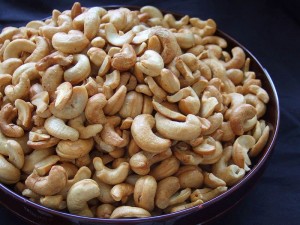 Eating tree nuts appears to help lower and stabilize blood sugar levels in people with Type 2 diabetes compared to those on a control diet, a new study has found.
Eating tree nuts appears to help lower and stabilize blood sugar levels in people with Type 2 diabetes compared to those on a control diet, a new study has found.
A systematic review meta-analysis of the totality of the evidence from 12 clinical trials in 450 participants found that eating about two servings a day of tree nuts improved the two key markers of blood sugar: the HbA1c test, which measures blood sugar levels over three months, and the fasting glucose test, where patients are not allowed to eat or drink anything but water for eight hours before their blood glucose levels are tested.
The best results were seen when tree nuts replaced refined carbohydrates rather than saturated fats, said Dr. John Sievenpiper, a physician and researcher in the Clinical Nutrition and Risk Factor Modification Centre of St. Michael’s Hospital. The results of his study were published today in the online journal PLOS ONE.
Dr. Sievenpiper said participants in the clinical trials reviewed ate 56 grams of tree nuts a day. One serving of tree nuts is about ¼ cup or 30 grams. He said that people in North America consume on average less than one serving a day, so this is one way they can adapt their diets to take advantage of the metabolic benefits.
Tree nuts are such things as almonds, Brazil nuts, cashews, chestnuts, coconuts, hazelnuts, pecans, macadamia nuts, walnuts, pine nuts and pistachios. They do not include peanuts, which are legumes.
Dr. Sievenpiper said that while nuts are high in fat, it’s healthy unsaturated fat and while they can also be high in calories, participants in the clinical trials did not gain weight. “Tree nuts are another way people can maintain healthy blood sugar levels in the context of a healthy dietary pattern,” he said.
This St. Michael’s Hospital study received funding from the International Tree Nut Council Nutrition Research and Education Foundation and Canadian Institutes of Health Research. Cashew top image credit Midori on Wikimedia.
